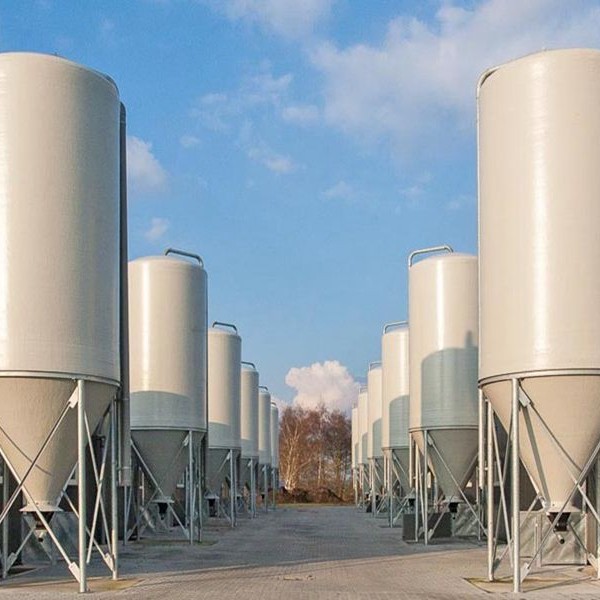
-
 Afrikaans
Afrikaans -
 Albanian
Albanian -
 Amharic
Amharic -
 Arabic
Arabic -
 Armenian
Armenian -
 Azerbaijani
Azerbaijani -
 Basque
Basque -
 Belarusian
Belarusian -
 Bengali
Bengali -
 Bosnian
Bosnian -
 Bulgarian
Bulgarian -
 Catalan
Catalan -
 Cebuano
Cebuano -
 China
China -
 China (Taiwan)
China (Taiwan) -
 Corsican
Corsican -
 Croatian
Croatian -
 Czech
Czech -
 Danish
Danish -
 Dutch
Dutch -
 English
English -
 Esperanto
Esperanto -
 Estonian
Estonian -
 Finnish
Finnish -
 French
French -
 Frisian
Frisian -
 Galician
Galician -
 Georgian
Georgian -
 German
German -
 Greek
Greek -
 Gujarati
Gujarati -
 Haitian Creole
Haitian Creole -
 hausa
hausa -
 hawaiian
hawaiian -
 Hebrew
Hebrew -
 Hindi
Hindi -
 Miao
Miao -
 Hungarian
Hungarian -
 Icelandic
Icelandic -
 igbo
igbo -
 Indonesian
Indonesian -
 irish
irish -
 Italian
Italian -
 Japanese
Japanese -
 Javanese
Javanese -
 Kannada
Kannada -
 kazakh
kazakh -
 Khmer
Khmer -
 Rwandese
Rwandese -
 Korean
Korean -
 Kurdish
Kurdish -
 Kyrgyz
Kyrgyz -
 Lao
Lao -
 Latin
Latin -
 Latvian
Latvian -
 Lithuanian
Lithuanian -
 Luxembourgish
Luxembourgish -
 Macedonian
Macedonian -
 Malgashi
Malgashi -
 Malay
Malay -
 Malayalam
Malayalam -
 Maltese
Maltese -
 Maori
Maori -
 Marathi
Marathi -
 Mongolian
Mongolian -
 Myanmar
Myanmar -
 Nepali
Nepali -
 Norwegian
Norwegian -
 Norwegian
Norwegian -
 Occitan
Occitan -
 Pashto
Pashto -
 Persian
Persian -
 Polish
Polish -
 Portuguese
Portuguese -
 Punjabi
Punjabi -
 Romanian
Romanian -
 Russian
Russian -
 Samoan
Samoan -
 Scottish Gaelic
Scottish Gaelic -
 Serbian
Serbian -
 Sesotho
Sesotho -
 Shona
Shona -
 Sindhi
Sindhi -
 Sinhala
Sinhala -
 Slovak
Slovak -
 Slovenian
Slovenian -
 Somali
Somali -
 Spanish
Spanish -
 Sundanese
Sundanese -
 Swahili
Swahili -
 Swedish
Swedish -
 Tagalog
Tagalog -
 Tajik
Tajik -
 Tamil
Tamil -
 Tatar
Tatar -
 Telugu
Telugu -
 Thai
Thai -
 Turkish
Turkish -
 Turkmen
Turkmen -
 Ukrainian
Ukrainian -
 Urdu
Urdu -
 Uighur
Uighur -
 Uzbek
Uzbek -
 Vietnamese
Vietnamese -
 Welsh
Welsh -
 Bantu
Bantu -
 Yiddish
Yiddish -
 Yoruba
Yoruba -
 Zulu
Zulu
fiberglass chemical product
The Importance of Fiberglass Chemical Products in Modern Industries
Fiberglass, a composite material made of a polymer matrix reinforced by fine glass fibers, has revolutionized various industries due to its remarkable properties. Though often associated with insulation and construction, fiberglass chemical products have a far-reaching impact, contributing to advancements in automotive, aerospace, marine, and construction industries.
One of the most compelling advantages of fiberglass is its strength-to-weight ratio. This feature allows products made from fiberglass to be both lightweight and exceptionally strong, making it an ideal choice for the automotive industry. Fiberglass panels are increasingly used in vehicle manufacturing as they provide enhanced fuel efficiency while maintaining structural integrity. Lightweight materials lead to reduced energy consumption and lower carbon emissions, aligning closely with the global push for sustainability in transportation.
In the aerospace sector, the applications of fiberglass are equally transformative. Airplanes composed of fiberglass composites can achieve greater fuel efficiency and performance compared to traditional metal structures. The high strength and resistance to corrosion of fiberglass enable aircraft to endure extreme environmental conditions, contributing to longer operational lifespans. Components such as fuselage sections, wing structures, and even certain internal fittings benefit from the adaptability and resilience of fiberglass, making it a pivotal material in modern aviation.
Another significant domain where fiberglass chemical products shine is the marine industry. Boats and ships made from fiberglass are not only lightweight and strong but also resistant to rotting, corrosion, and marine growth, which are common issues with wooden and metal vessels. This makes fiberglass an ideal material for crafting hulls, decks, and other critical components of watercraft. Furthermore, the versatility of fiberglass allows for a range of design possibilities, leading to more innovative and creative forms while ensuring longevity and durability.
fiberglass chemical product

The construction industry also reaps the benefits of fiberglass chemical products. From insulation materials to structural reinforcements, fiberglass plays a pivotal role in enhancing building performance. Fiberglass insulation offers superior thermal performance while being lighter and easier to handle compared to traditional materials. This not only reduces energy costs but also contributes to healthier indoor air quality, as fiberglass is non-combustible and does not emit harmful gases. Additionally, fiberglass-reinforced polymer (FRP) composites are increasingly used in bridges, tunnels, and buildings, thanks to their resistance to environmental degradation and high tensile strength.
Moreover, fiberglass chemical products have become essential in the realm of environmental sustainability. With growing concerns about climate change and resource depletion, the development of eco-friendly fiberglass has gained momentum. Manufacturers are now exploring bio-based resins and recyclable fiberglass composites, which lessen the environmental impact of production processes. By adopting such innovations, industries can contribute to a circular economy while maintaining the desired performance characteristics of fiberglass materials.
Despite these advantages, challenges remain in the fiberglass industry. Concerns over the inhalation of fine glass fibers and the environmental impact of some fiberglass production processes are areas that need addressing. Advancements in safety protocols and the development of safer production methods are necessary to mitigate these risks and ensure the health and safety of workers and consumers alike.
In conclusion, fiberglass chemical products play a crucial role in multiple sectors, offering a blend of strength, durability, and innovation. Their applications in automotive, aerospace, marine, and construction industries illustrate the versatility and importance of fiberglass in modern manufacturing. As the demand for sustainable and efficient materials continues to grow, the fiberglass industry must also evolve, focusing on safety and environmental stewardship. With ongoing research and development, fiberglass will undoubtedly maintain its position as a cornerstone of innovation in various fields for years to come.
Latest news
-
Exploring the Benefits of Top Hammer Drifter Rods for Enhanced Drilling PerformanceNewsJun.10,2025
-
High-Precision Fiberglass Winding Machine for GRP/FRP Pipe Production – Reliable & Efficient SolutionsNewsJun.10,2025
-
FRP Pipes & Fittings for Shipbuilding - Corrosion-Resistant & LightweightNewsJun.09,2025
-
Premium FRP Flooring Solutions Durable & Slip-ResistantNewsJun.09,2025
-
Premium Fiberglass Rectangular Tanks Durable & Lightweight SolutionNewsJun.09,2025
-
Tapered Drill String Design Guide Durable Performance & UsesNewsJun.09,2025









